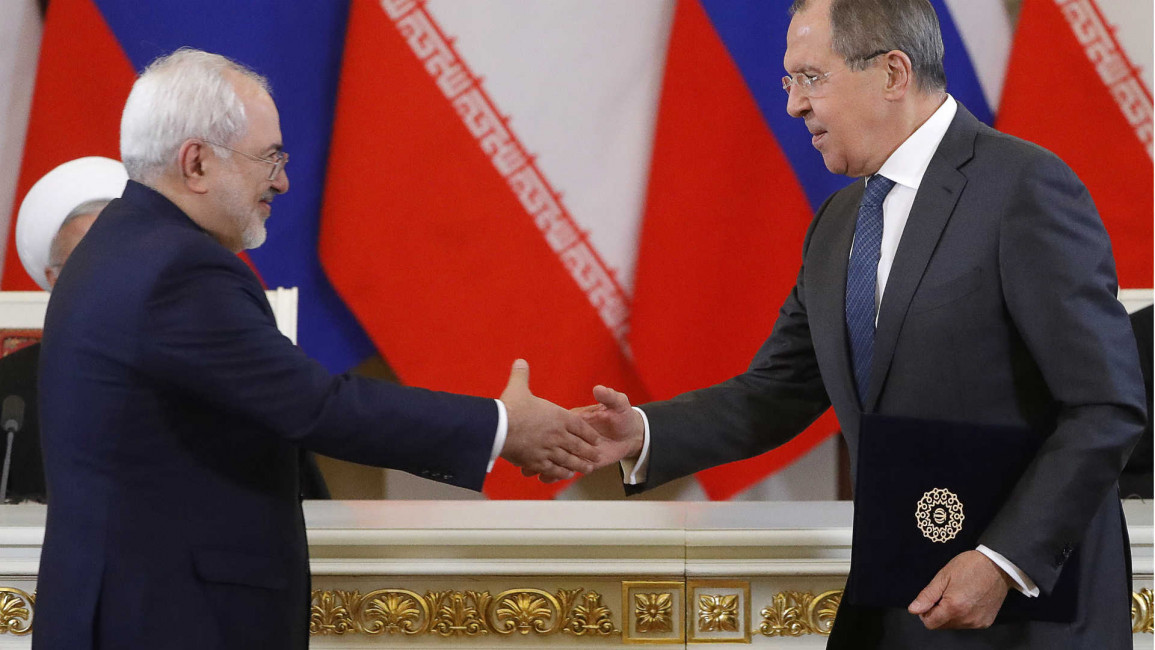Iranian state TV
Irib broadcasted images of Javad Zarif landing in Moscow after arriving around 4 am local time. He is scheduled to meet with his Russian counterpart Sergei Lavrov.
A Russian foreign ministry spokesman confirmed the pair would meet Monday morning.
Zarif's arrival in the Russian capital follows a recent trip to Beijing over the weekend as part of a diplomatic tour to meet the various parties of the P5+1 nuclear deal.
After meeting his Chinese counterpart on Sunday, Zarif said he was hopeful of forging a "clear future design" for the accord.
Russian President Vladimir Putin has already spoken with Germany's Angela Merkel and Turkey's Recep Tayyip Erdogan about the efforts, after voicing his "deep concern" over US President's Donald Trump's decision.
Trump's move to ditch the nuclear deal has angered Washington's allies in Europe as well as China and Russia.
"(European) cooperation with Russia, which until recently seemed impossible because of the Skripal (spy poisoning) case, with the expulsion of diplomats and the reduction of contact, is now receiving a fresh boost," consultant Andrei Baklitski of the PIR Center NGO told AFP.
"The Europeans, after the withdrawal of the US from the deal, have found themselves forced to save the Joint Cooperative Plan of Action themselves," he added.
Moscow is expected to play a key role in trying to save the 2015 agreement, a move which could boost its role as a power-player in the Middle East.
This, along with Russia's support for Syrian President Bashar al-Assad, has put Moscow at odds with the US.
Zarif's diplomatic tour comes at the same time that Iran has said it is prepared to resume "industrial-scale" uranian enrichment "without any restrictions" unless Europe can provide guarantees it can maintain trade ties despite renewed US sanctions.
However, Washington has warned European businesses they could face secondary sanctions if they continue to do business in Iran after the announced six month wind-down period comes to an end.
Iran had agreed in July 2015 to freeze its nuclear programme in return for the lifting of punishing international sanctions.
The deal was negotiated between Iran and the five permanent members of the UN Security Council -- Britain, China, France, Russia and the United States -- plus Germany.
Russia and Iran once had difficult relations but have seen ties improve since the end of the Cold War. Moscow and Tehran have sought to strengthen their business ties well before the 2015 accord was penned.
Analysts have suggested Russia could benefit economically from the US pull-out, as it is less exposed to the consequences of renewed sanctions than Europe.
Follow us on Twitter: @The_NewArab


![President Pezeshkian has denounced Israel's attacks on Lebanon [Getty]](/sites/default/files/styles/image_684x385/public/2173482924.jpeg?h=a5f2f23a&itok=q3evVtko)



 Follow the Middle East's top stories in English at The New Arab on Google News
Follow the Middle East's top stories in English at The New Arab on Google News


